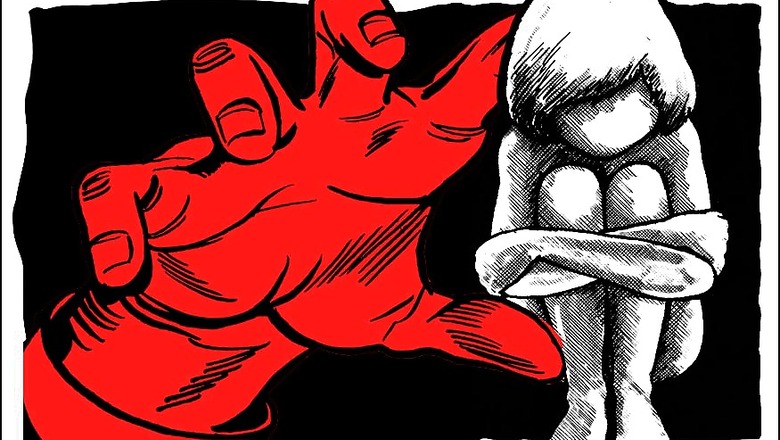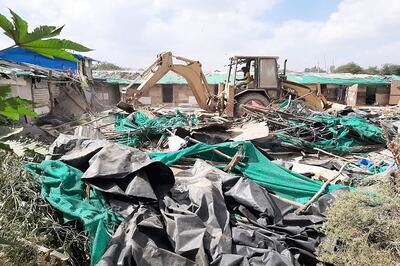
views
New Delhi: With the promulgation of the ordinance on the amendment of the Indian Penal Code and the Protection of Children from Sexual Offences Act, 2012 (POCSO), those found guilty of raping a girl child below the age of 12 can be sentenced to death.
The ordinance comes after the nation-wide furore following the brutal rape and murder of an eight-year-old in Jammu's Kathua district. The last time laws pertaining to crime against women were changed was after the brutal December 16 Delhi gang rape. The change was again a reaction to the popular anger that poured out in the streets of the country.
But is making stronger laws the best way to counter the rise in crime against women? News18 spoke to a forensic psychiatrist based out of Yorkshire, United Kingdom to understand how post-trauma care should become the focus of the state to bring about a lasting change in the society.
Dr Drona Sharma has been a consultant psychiatrist with the North Yorkshire County Council where he helps in trauma care of both the victims and the perpetrators of heinous crimes. From his experience, Dr Sharma points out how it is important to provide psychiatric help not just to the victims but also the convicts.
Speaking about the Kathua case, Dr Sharma points out that if the girl had survived she would have probably gone through severe physical, mental and emotional trauma. Her behaviour would have changed and her interpersonal relationships would have changed. And later on in her life, she would have faced problems fitting into society, given the way it still looks at victims of sexual crimes.
The biggest problem that victims face is Post-Traumatic Stress Disorder (PTSD), where they relive the crime and have bouts of anxiety, depression. There are times when they develop Emotional Dysregulation and hence resort to harming themselves. The range of trauma is huge and Dr Sharma learnt from his time dealing with such cases that it increases when victims feel they are not believed or are being blamed for the crime.
In a society like ours, where victim shaming is more a norm than exception, it becomes doubly difficult for the sufferer. As Dr Sharma puts it, when victims are blamed for the crime and their social position is compromised, the complexity and the intensity of the trauma increase many folds. Thus comes the question of post-traumatic care.
To begin with, there are a few therapies which can help the victim, but she should have a safe place to go to and be among the people she trusts. In cases of where the assault isn’t interfamilial, the immediate family becomes that safe zone.
It is also important to train this close circle of friends and family, who become the obvious first ring of people around her. In the Indian set up, even the family goes through a lot of trauma and thus they should be provided with enough support so that they can bring a positive impact in the life of the victim.
Dr Sharma says for the girl to win over her stress and pain, she should be given therapies. In these cases, Trauma-Focused Cognitive Behavioral Therapy works well as it is something which can be applied to various cultures and age group. The focus should be to use the mechanism to take them away from self-blame, self-loathing and bring them to a stage where they develop confidence in themselves.
This is when the family is involved and an attempt is made to make her go back to her old life. At the very end of the process, introduce her to that very traumatic situation. In the Kathua girl’s case, if she had survived then the process would be to introduce her to the forest, so that the forest doesn’t remain that scarred place all her life.
There is a need for the state to intervene and provide this care to victims. Otherwise, there are strong chances that the mental scar would remain forever. This is especially true in the cases where the victim comes from an economically weak section of the society.
Dr Sharma also throws an interesting light on the life of the perpetrator of the crime. The convict spends years in jail and no one helps him understand his crime. After long years inside, when he steps out, he often develops a pathological hatred for the victim or those who fall into the profile of the victim.
This is where Forensic Psychiatry comes into play. In a paper called ‘Forensic Psychiatry in India: Past, Present, and Future’ the authors S Nambi, Siva Ilango and Lakshmi Prabha define it as a “subspecialty of psychiatry, in which scientific and clinical expertise is applied to legal issues in legal contexts embracing civil, criminal, correctional, or legislative matters". Forensic psychiatry is still at an infant stage in India and other developing countries. Law is the sanctioning discipline, and Psychiatry is the therapeutic discipline. Due to various reasons, Forensic Psychiatry is reared as Cinderella in our country: “which is much neglected, ignored, misinterpreted, and misunderstood". Legislation forms an integral component in the implementation of Mental Health Care. There is a dynamic relationship between the concept of mental illness, treatment of the mentally ill, and the law.
As Dr Sharma points out, instead of new laws, we need to make the entire legal system robust and bring in that care element which can then become the humane arm of law enforcement.




















Comments
0 comment